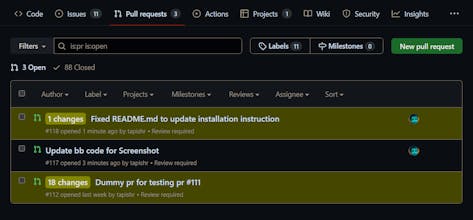If your team misses delivery deadlines due to rework or resolved issues reappear in your product, then this is the tool for you. Vibinex automatically distributes the review process among developers at a code-hunk level for better quality and faster delivery.
Subscribe
Sign in











Vibinex Code-Review
Collato
Vibinex Code-Review
Collato
Vibinex Code-Review
Collato